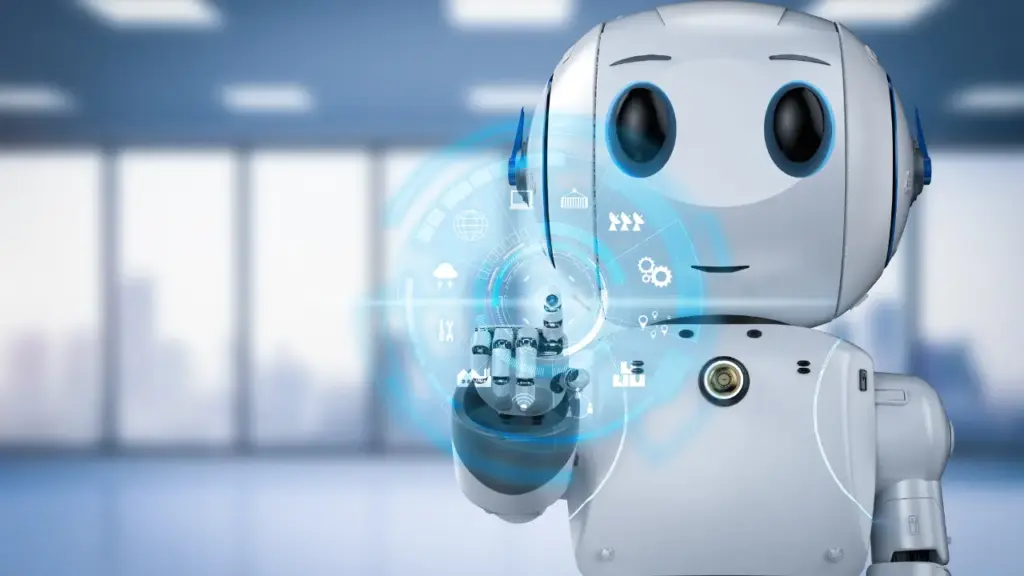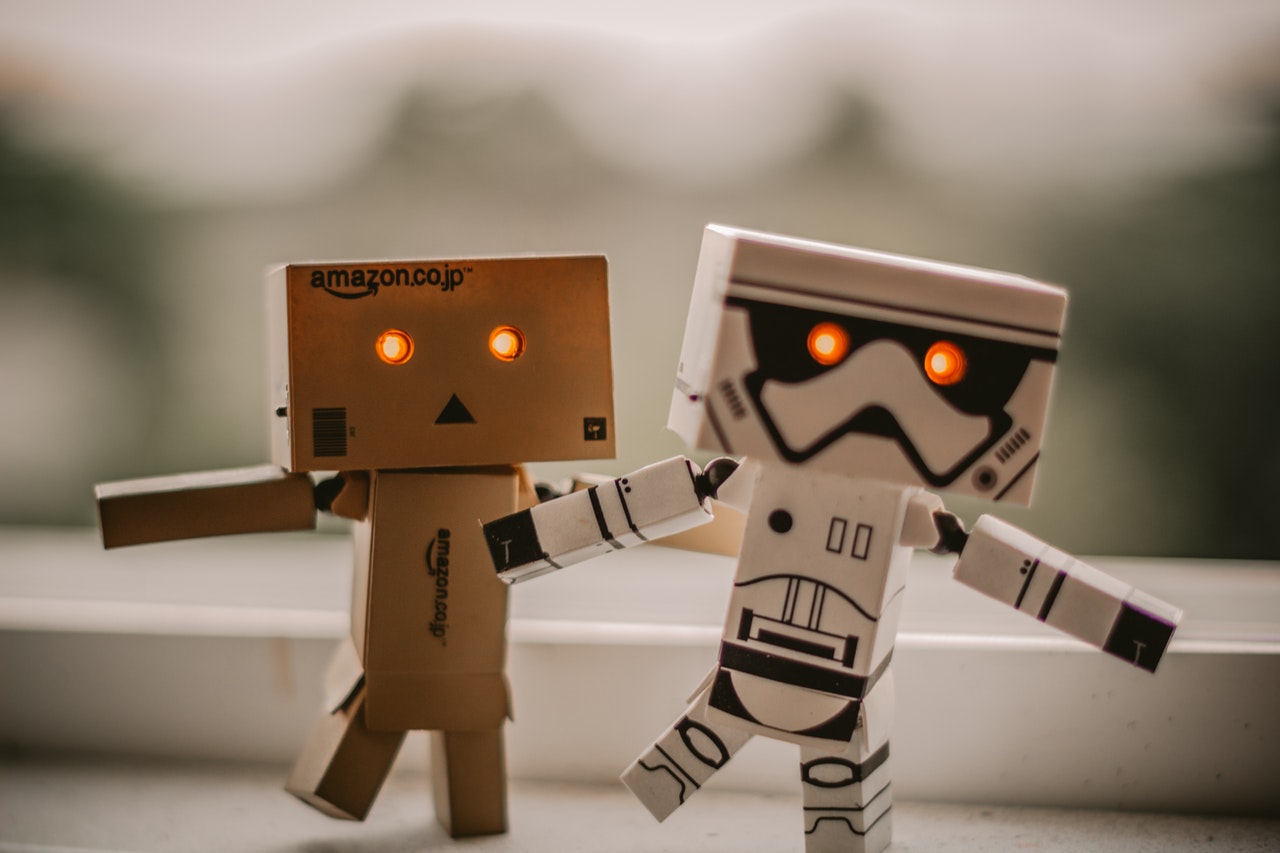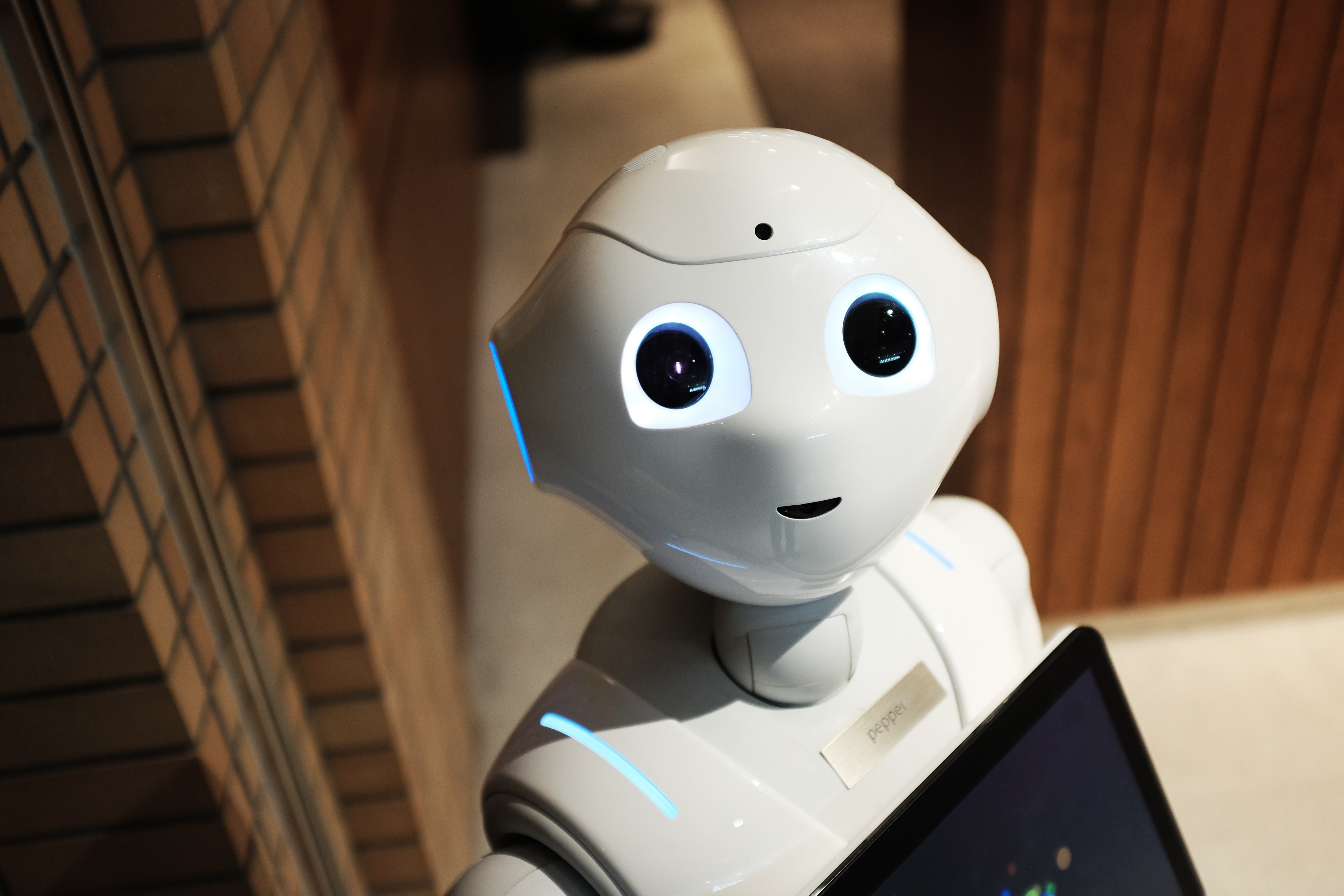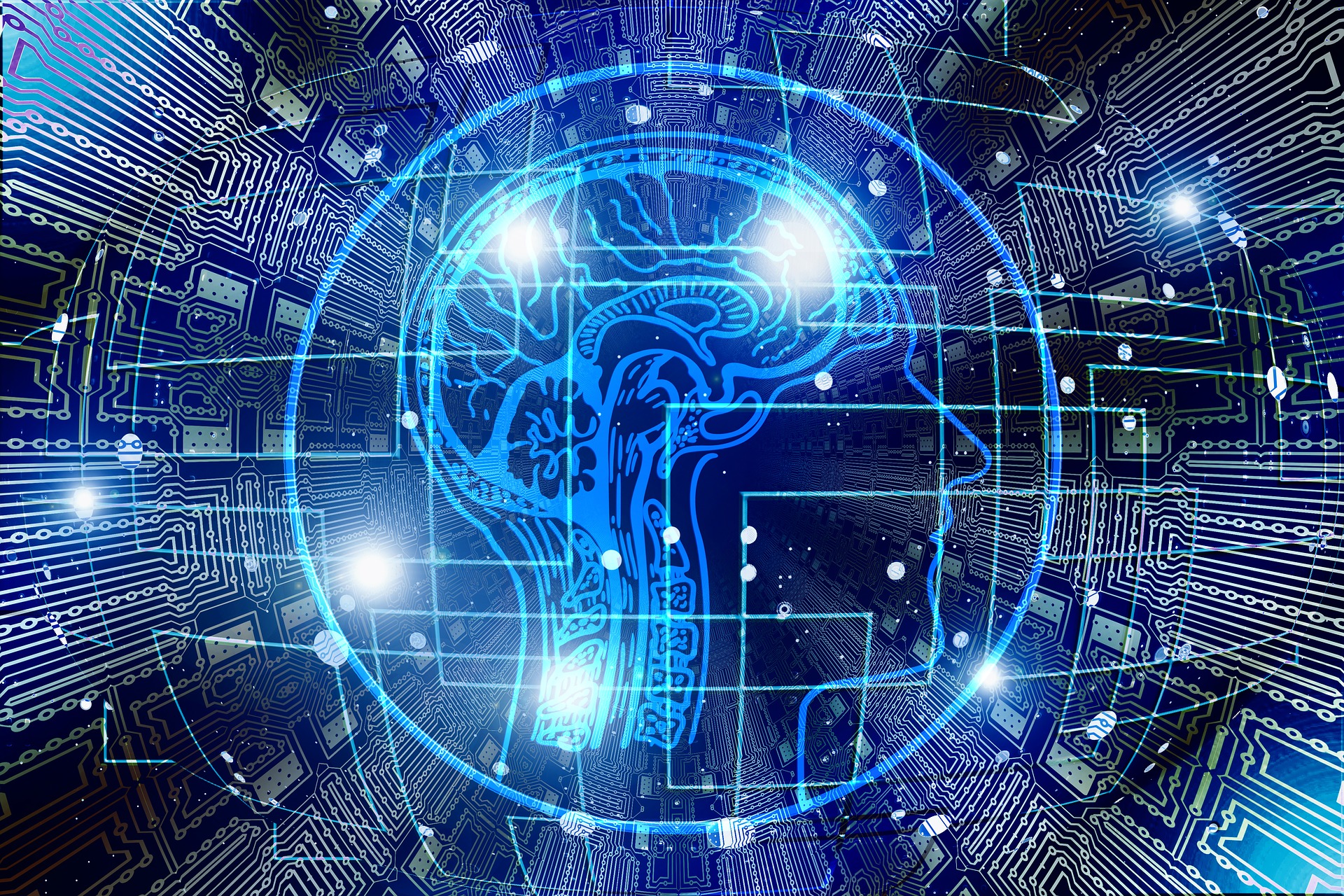
How Artificial Intelligence will affect Internet Marketing | Future proof for your Website
How Artificial Intelligence will affect Internet Marketing?

AI-driven search and digital marketing is just around the corner. So too are newer devices, such as folding phones, and faster-than-ever connections via 5G.
As a webmaster or internet marketer, your work is never finished when it comes to maintaining your website and ensuring it works as it should. In this post, we’ll look at four things you can do right now to future proof your website and to protect it against future change.
Responsive Design
Of course, your website should already have a responsive design. But if you want to make your site as future proof as it possibly can be, then it should be really responsive.
Folding phones are just around the corner, and these will be used by countless people to view web pages. Don’t think they will catch on? No one thought big smartphones would either!
Your website needs to not only look great on a huge range of different devices, but also to be able to change size in real time. If your theme essentially switches between two versions for large and small sites… that’s not good enough!
Smarter Images
Google looks at images a little right now, paying most attention to the alt-tags and the file-names. In the not-too-distant future though, it will also be able to look at the actual content of the images. This will be possible thanks to machine learning which will give us advanced computer vision.
We can already see this in products like Google Lens, which can tell us things about objects we point our cameras at. Imagine that functionality baked into Google, and you have an even more powerful form of search!
Wiser Wording
Google is getting smarter and smarter all the time. Not only does that mean it’s getting better at discerning high quality and low quality content, but it also means that it’s getting better at understanding context and meaning.
Google doesn’t just look for content matches any more, but actually understands what users are looking for, and can find answers within your text.
Google wants more people to search using voice through Assistant, which means we need to write using natural language and semantic markups to help it find the important parts of our content.
Media Rich Design
While you might not want to make any changes like this just yet, it will make sense in the next few years to start adding richer media to websites. As more and more people start using 5G, loading times will get faster the world over. That in turn means that a video or large image will have less negative impact on page load speeds.
There’s no requirement to add large animated backgrounds, or crisp HD images, but seeing as your competition might… it certainly can’t hurt either!
Don’t do this yet, but have a think about how you could upgrade your site for faster connections and then you’ll be ready to embrace this new technology.
Do all this, and your website will survive the coming years with no problem!
How a Chatbot Could Boost Traffic and Sales

If you’re looking for a way to bring your website into the 21st century, to potentially increase your sales, and to improve customer satisfaction, then you should consider getting a chatbot.
What is a Chatbot?
A chatbot is a little AI assistant that lives right on your website, or that users can contact through social chat apps such as Facebook Messenger. The idea is that your chatbot will be there to answer questions, give advice, and even suggest recommendations – all without you or your business having to raise a finger.
Users can speak to a chatbot through a chat window, as though it were a real person located in a call center. They can then ask questions using natural language, and the chatbot will respond.
Chatbots are often considered primarily for customer service. The idea here, is that a chatbot can help people with FAQs, or direct them to the page they need. A chatbot can provide advice on what to do if a product is damaged, and on how to contact the company.
All this can improve customer satisfaction, without requiring you to spend large amounts of money. Because while most companies would love to be able to answer every question, that would require a huge support team of staff, which might well be outside of the budget of many smaller companies.
But with an automated chatbot, they can filter down the vast majority of issues so that only a few that can’t be answered from a flow chart need to be seen to in person.
Chatbots for Marketing
But where things get really interesting, is when you use chatbots for marketing.
How might this work? One example would be to try and increase conversion rates when a visitor lands on a website. Normally, you might use some sales text, and rely on users following the right links and buttons on your page in order to find the product listing for them.
Often this would result in confusion and frustration, and many visitors would leave before having a look around.
Bounce rates are high across the internet.
But with a chatbot, this could be very different. Imagine if the very moment someone landed on your website, a chatbot asked them what they were looking for. When they answered, that chatbot could take them straight to the relevant page ready for them to buy. No searching through the site, no complication.
What’s also great about this, is that even if a visitor doesn’t buy anything, they will have shared their ‘intent’ simply by telling the chatbot what they were looking for. This kind of data can be hugely beneficial for marketers.
More Types of Chatbot
Chatbots can also take many other forms. For example, it is increasingly common for chatbots to be used over Facebook messenger. Several restaurants and fast food joints now allow customers to order their food simply by messaging the resident chatbot this way!
Moreover, Facebook chatbots can actually reach out to potential customers and buyers to offer them special deals!
How AI Will Change the Face of the Internet
AI has the potential to change the face of the internet, and potentially to completely destroy it.
Often, you hear leading thinkers like Elon Musk talk about the threat of AI. Stephen Hawking famously said that AI could be the worst event in civilization, and that it might spell the end of the human race!
All this might have you picturing such things as Skynet and Hal from 2001 Space Odyssey. But that’s probably not what they’re talking about.
Those science-fiction horrors are examples of what you would call “General AI”. That is essentially AI designed to completely replace a human, which we haven’t come all that close to creating yet. The closest thing to this is DeepMind, which still isn’t likely to pass the Turing Test.
What these great thinkers are talking about on the other hand – most likely – is the power of machine learning and narrow AI to completely transform the economy, the web, and what it means to be human.

AI Will Totally Destroy Internet Marketing
Let’s imagine how AI might impact on internet marketing for a moment. Currently, the best way to ensure your content gets seen is to write lots of high quality articles or posts, and then to share them to a blog.
But what if an AI could write an article better than you could? This isn’t hypothetical – it’s something that has already been achieved in several instances.
What would take a human an hour to write would take an AI a fraction of a second. And that would mean it could flood the web with new content – doubling or tripling its size overnight.
Now imagine that this gets into malicious hands. AI could write forum posts and create social media profiles and could lace that content with a specific message. In no time at all, it would be able to sway public opinion, or rewrite history. And human writers would be powerless to stop it!
In the future, you may not know what is written by a human vs an AI. And you may not know what to trust.
An early example of this that we should heed as a warning is the “deep fake.” Deep fakes are videos of celebrities that have been created via machine learning. Celebrity faces have been added to videos of other people and can thus be made to say and do anything.
This is only possible thanks to complex machine learning algorithms that work by analyzing countless images of faces to see how they contort and change during speech and movement.
Imagine a world where this has become so easy to do, that you can never know if an online video is real or not.
It might well get to the point where people are forced to stop using the internet, because there is such a huge wealth of fake information and auto-generated content.
Of course, that’s a long way in the future. But we should keep an eye on AI, and we shouldn’t take the web for granted!
How Google is Getting Smarter and What That Means for Marketers
Most of us use Google every single day, and still it finds ways to surprise us. Have you ever gone to search for something in Google, only to find that it does something almost creepily intelligent?
For example, you might have noticed lately how Google will suggest search terms for you and often get them right. If I search “Ninja Turtles history” and then later start typing “Names of…”, there is a good chance that Google will suggest I finish that query with “…the Ninja Turtles.”
Google is now smart enough to recognize that we tend to search more than once around the same topic, and it can help us to save time typing out questions as a result. At the same time, this also provides some encouragement as to what to search, thereby keeping users on Google for longer and benefiting the search giant too.
But take a moment to reflect on just how impressive this is really. Not only has Google understood that you are likely to be looking for more things related to your first search, but it has also understood that the Ninja Turtles have names – that they are a group of fictional characters.
How can it do this?
Partly it comes down to a very powerful new feature of the algorithm called “rankbrain”.
Introducing Rankbrain

Essentially, RankBrain is an algorithm designed to better understand what people mean when they search for something.
Previously, Google worked by looking for exact keyword matches. If someone searched for a phrase such as “buy hats online,” then Google would look for a website that featured that exact phrase somewhere in the text.
This was a simple method, but unfortunately it was also flawed. Apart from anything else, it was very easy for website owners to try and “trick” Google.
RankBrain changes this by splitting search phrases up into “word vectors” that categorize search terms by their meaning and their context. This way, RankBrain can then attempt to understand the question and then find an actual answer online.
This also allows Google to avoid making mistakes when looking at words with more than one meaning. For example, if you were to search for “decision trees,” then Google might once have gotten confused between the flow chart, and decisions about trees.
The old Google might have brought up an article telling you how to “make decisions about trees.”
The new Google however will look for related terms and phrases in the text, which could include such things as “flow chart” or “choices.”
By recognizing these terms are also in the text, Google will know that the user was asking about decision trees (flow charts) and not tree decisions!
Google is getting smarter all the time, and is becoming increasingly adept at second guessing users and knowing how to provide them with useful answers. This changes the game for internet marketers too though, who now need to think in terms of synonyms and related terms, instead of just repeating the same phrase over and over!
A smarter Google requires smarter marketing!





